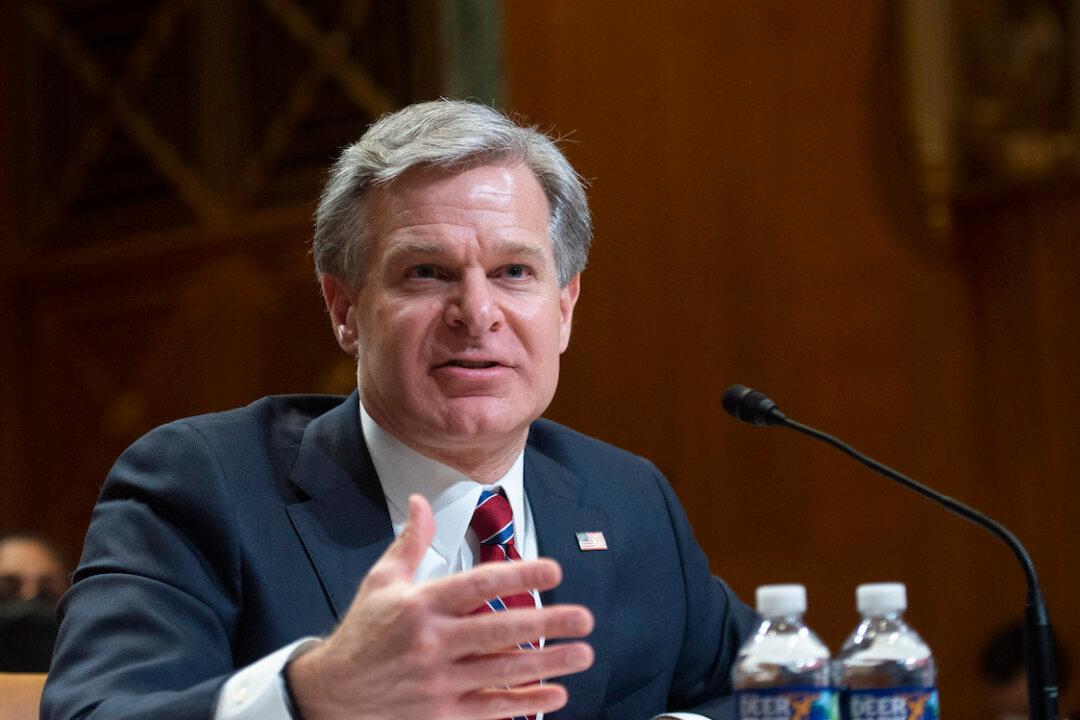FBI Director Christopher Wray on Friday outlined key threats posed by video sharing app TikTok and said that U.S. officials are still working on how to address the app’s national security concerns.
Wray said that the FBI has security concerns about Tiktok, which is owned by private Chinese company Bytedance.




